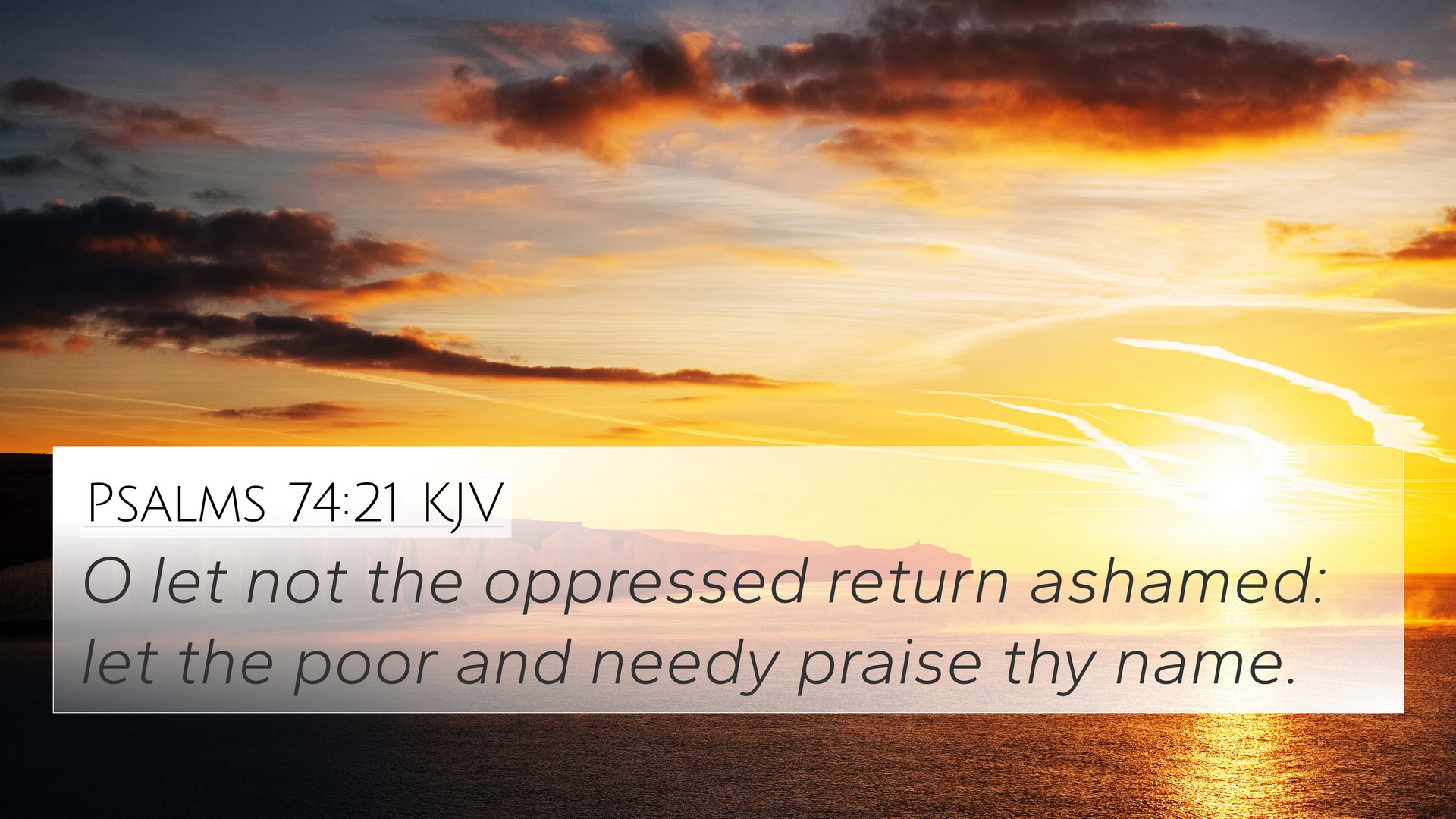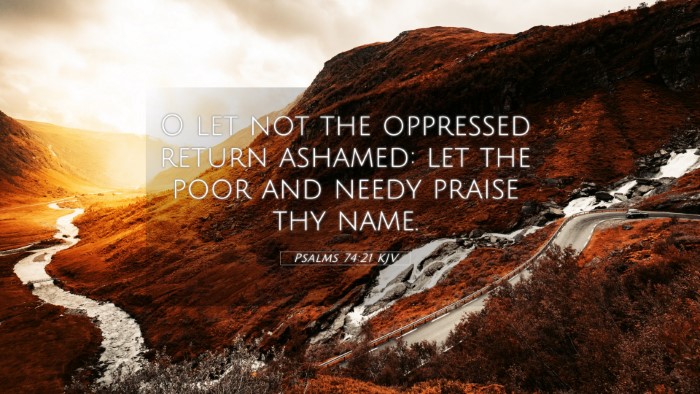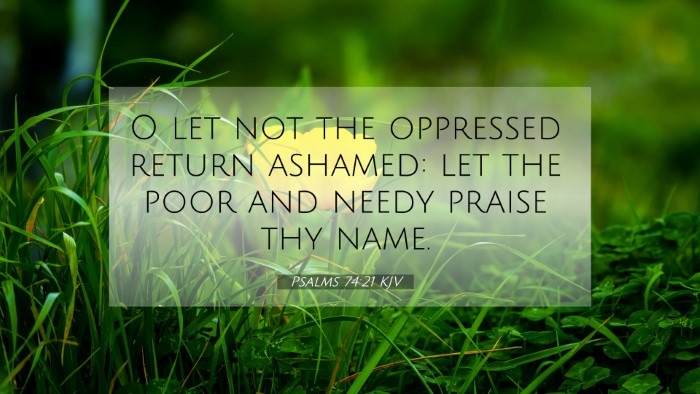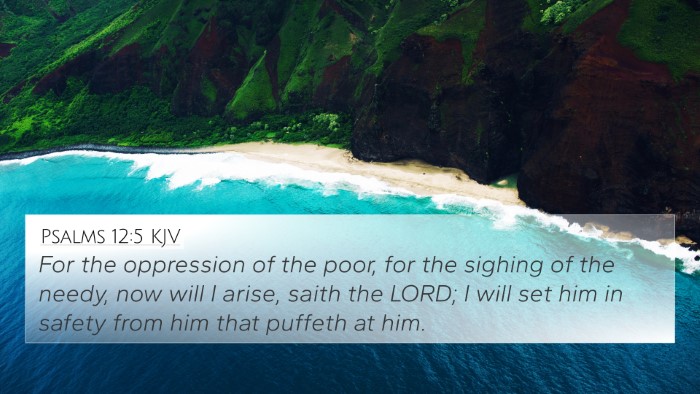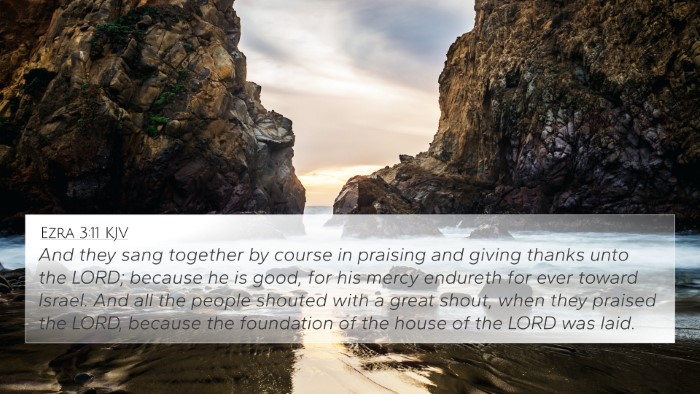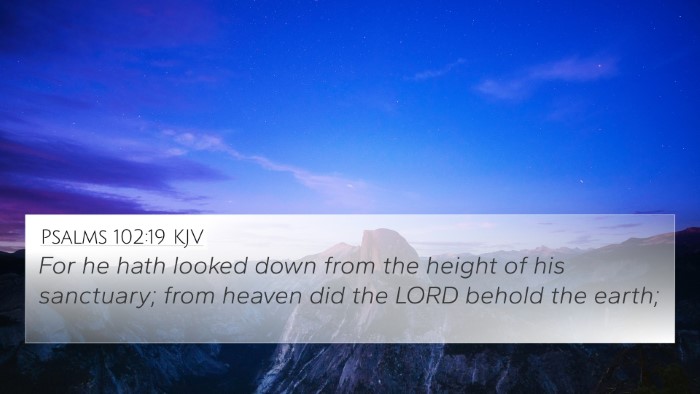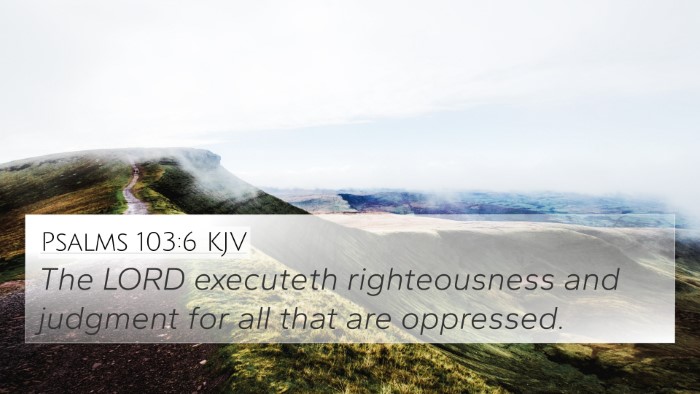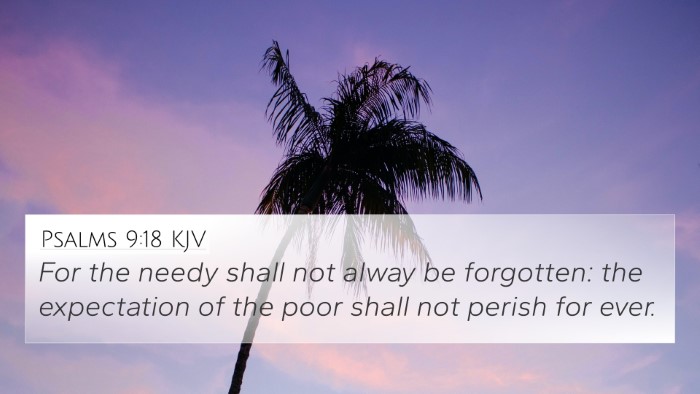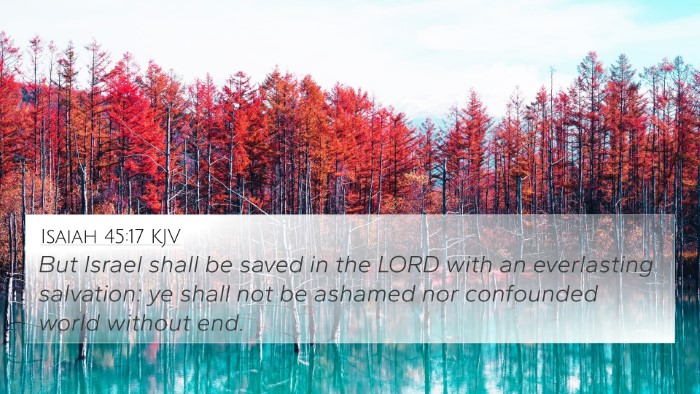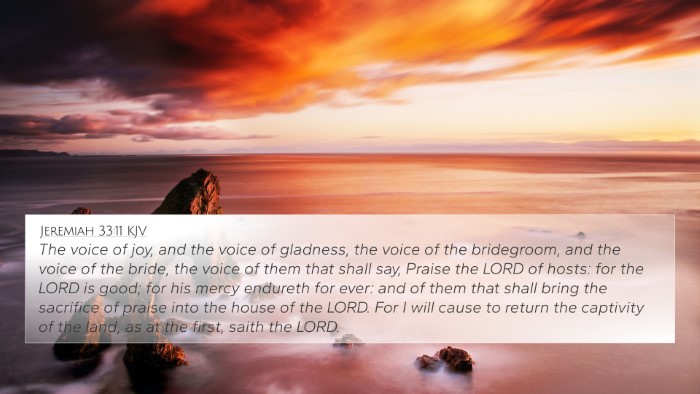Psalms 74:21 - Meaning and Interpretation
The verse Psalms 74:21 states:
"O let not the oppressed return ashamed: let the poor and needy praise thy name."
This verse captures a powerful plea from the psalmist, seeking divine intervention and support for the downtrodden and marginalized. It emphasizes themes of hope, justice, and divine compassion.
Summary and Insights from Public Domain Commentaries
Insights from respected biblical scholars provide deeper understanding of this poignant scripture:
- Matthew Henry emphasizes the importance of God's protection for the oppressed and the necessity for them to maintain their dignity. He notes that the psalmist is asking God not to let those who suffer humiliation be made to return to their shame, highlighting God's role as a refuge for the needy.
- Albert Barnes points out that this plea reflects a broader concern for justice and divine support. The psalmist's call for praise indicates a longing for the afflicted to still recognize the glory and goodness of God despite their suffering.
- Adam Clarke interprets this verse as a reminder of God’s faithfulness to those in need. He underscores that the poor and needy should find their voices in praise, reinforcing the idea that worship is essential even in difficult times.
Thematic Connections and Cross-References
This verse connects with numerous themes and cross-references throughout the Bible:
Related Bible Verses
- Psalms 9:18: "For the needy shall not always be forgotten; the expectation of the poor shall not perish forever." This reinforces the theme of God's continual support for the needy.
- Psalms 34:6: "This poor man cried, and the Lord heard him, and saved him out of all his troubles." This highlights the responsiveness of God to the cries of the afflicted.
- Psalms 146:7: "Which executeth judgment for the oppressed: which giveth food to the hungry. The Lord looseth the prisoners." This emphasizes God's role as a liberator and provider.
- Isaiah 61:1: "The Spirit of the Lord GOD is upon me; because the LORD hath anointed me to preach good tidings unto the meek; he hath sent me to bind up the brokenhearted..." This prophetic affirmation relates to Jesus' mission as a redeemer for the oppressed.
- Lamentations 3:34-36: "To crush under his feet all the prisoners of the earth, to turn aside the right of a man before the face of the most High, to subvert a man in his cause, the Lord approveth not." This verse highlights God's concern for justice.
- Matthew 5:3: "Blessed are the poor in spirit: for theirs is the kingdom of heaven." This connection to the Beatitudes illustrates the value God places on humility and neediness.
- James 2:5: "Hearken, my beloved brethren, Hath not God chosen the poor of this world rich in faith, and heirs of the kingdom which he hath promised to them that love him?" This New Testament verse echoes the sentiments of Psalms 74:21 about God's favor towards the poor.
Implications for Believers
The plea in Psalms 74:21 serves as a reminder for believers to advocate for justice, support those in need, and recognize their worth regardless of their circumstances. It encourages:
- Empathy: Understanding the struggles of the marginalized.
- Gratitude: Recognizing God's provisions in times of trouble.
- Hope: Maintaining faith in God’s ultimate justice and deliverance.
Tools for Bible Cross-Referencing
Engaging in cross-referencing Bible study enhances understanding of interconnected scriptures. Here are some tools and methods:
Methods for Cross-Referencing
- Bible Concordance: A useful tool for finding specific words or topics throughout the Bible.
- Bible Cross-Reference Guide: Guides provide systematic connections between verses.
- Cross-Reference Bible Study: Employing a study technique that emphasizes interlinking scriptures for broader insights.
- Bible Chain References: Following a series of verses that connect thematic elements.
How to Use Cross-References
Identifying connections between Old and New Testament texts broadens understanding of biblical narratives and themes:
- Look for thematic parallels in scripture to enhance sermon preparation.
- Consider comparative studies of prophetic teachings and their fulfillment.
- Explore links between the teachings of Jesus and the Old Testament scriptures.
Conclusion
Psalms 74:21 serves as a reminder of God’s compassion towards the oppressed and highlights the importance of faith and praise in trials. Through cross-referencing and thematic study, believers can gain deeper insights into their faith and encouragement to support one another in times of need.
